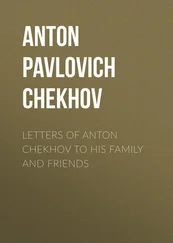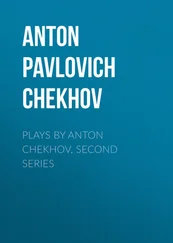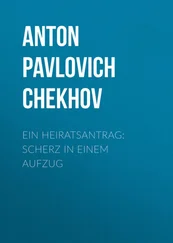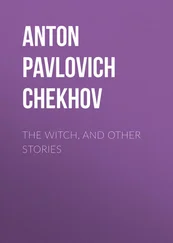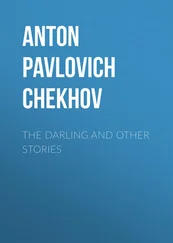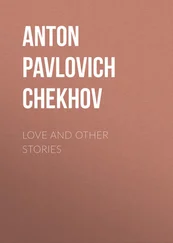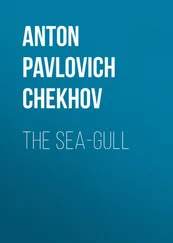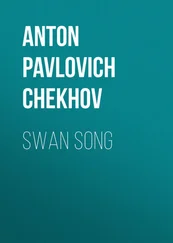Donald Rayfield - Anton Chekhov. A life
Здесь есть возможность читать онлайн «Donald Rayfield - Anton Chekhov. A life» весь текст электронной книги совершенно бесплатно (целиком полную версию без сокращений). В некоторых случаях можно слушать аудио, скачать через торрент в формате fb2 и присутствует краткое содержание. Жанр: Биографии и Мемуары, на английском языке. Описание произведения, (предисловие) а так же отзывы посетителей доступны на портале библиотеки ЛибКат.
- Название:Anton Chekhov. A life
- Автор:
- Жанр:
- Год:неизвестен
- ISBN:нет данных
- Рейтинг книги:5 / 5. Голосов: 1
-
Избранное:Добавить в избранное
- Отзывы:
-
Ваша оценка:
- 100
- 1
- 2
- 3
- 4
- 5
Anton Chekhov. A life: краткое содержание, описание и аннотация
Предлагаем к чтению аннотацию, описание, краткое содержание или предисловие (зависит от того, что написал сам автор книги «Anton Chekhov. A life»). Если вы не нашли необходимую информацию о книге — напишите в комментариях, мы постараемся отыскать её.
Anton Chekhov. A life — читать онлайн бесплатно полную книгу (весь текст) целиком
Ниже представлен текст книги, разбитый по страницам. Система сохранения места последней прочитанной страницы, позволяет с удобством читать онлайн бесплатно книгу «Anton Chekhov. A life», без необходимости каждый раз заново искать на чём Вы остановились. Поставьте закладку, и сможете в любой момент перейти на страницу, на которой закончили чтение.
Интервал:
Закладка:
Anton loved and pitied his mother. He deferred to and detested his father, but from the son's birth to the father's death father and son never permanently separated. Pavel, like his own father Egor, could behave like a heartless monster or callous humbug, and portray himself as an affectionate self-sacrificing patriarch. He inspired loathing in his eldest son Aleksandr and saccharine affection in his youngest, Misha. Few outside the family could regard him without amusement or irritation. Apart from the Lord God, with whom he constantly communed, his closest friend was his brother Mitrofan.
Mitrofan was a modestly successful merchant, liked in Taganrog. Constantly gathering and disseminating family news, he was the chief link in the family, a willing host and an effusive, if calculating correspondent. Mitrofan Chekhov and his brothers, Mikhail in Kaluga and Pavel a few hundred yards away, shared a fanatical piety and, sometimes, humbug. They were all founder members of a Brotherhood attached to the Cathedral in Taganrog. It collected money to support the Russian monastery on Mount Athos and to provide charity to Taganrog's poor. Pavel writes to Mitrofan in summer 1859 (the brothers addressed each other with the formal Vy, never the intimate Òó), giving the first hint of ÒÂ in the family:
7
1
FA I II IH I Î III I MAN
go to the trouble in Moscow of iiskinj; the /Vic-dual men regarding the illness of Evgenia Iakovlevna, the sort of illness is very well known, she spits every moment, this dries her out extremely, she is very fussy, the slightest thing becomes unpleasant to her, she loses her appetite and there is no way now of putting her right, would there be a means or a medicine to give her peace of mind and settle it?9 Family reunions were melancholy, quarrelsome occasions: from Kharkov in May i860 Mitrofan writes to his brother: this was a heavy day for me, from morning until dinner, I could in no way distract my heart, just the recollection that I am alone depressed me to the point of exhaustion… I was taken to dine at Nikolai Antonovich's… where I was received with affection and well, which rarely happens with us. All three of Egor Chekhov's sons were life-affirmers in one respect: as patriarchs. Mikhail had four daughters and two sons, Mitrofan three sons and two daughters. Pavel and Evgenia had seven children. They married on 29 November 1854; two more years elapsed before Pavel scraped together 2500 roubles to join the Third Guild of Merchants. Their first child, Aleksandr, was born on 10 August 1855, as the Crimean War ended. Two English ships bombarded Taganrog, demolishing the dome of the cathedral, the port and many houses. Evgenia and her sister-in-law Liudmila abandoned their homes, leaving a chicken still cooking, and fled to the steppes, to stay with Egor Chekhov. Here Evgenia gave birth in the priest's house. She returned to a tiny house belonging to Efrosinia, Pavel's mother, which Egor had divided between Pavel and Mitrofan. When Mitrofan married Pavel moved a few streets away to a rented two-room mud-brick house on Politseiskaia Street. In 1857 he began trading; on 9 May 1858 a second son, Nikolai [Kolia], was born. In 1859 the Third Guild was abolished; raising more capital, Pavel became a Second Guild merchant. Evgenia was pregnant again. Pavel was a conformist: he became alderman on the Taganrog Police Authority. In January 1860 he wrote to brother Mitrofan: 'last Saturday the Church of St Michael was struck by lightning and caught fire right in the dome.' This seemed to him a portent before Anton's birth on 16 January i860.10
TWO
1860-8
TAGANROG HAD imperial status and a cosmopolitan population that made it more of a colonial capital than a provincial city. Visually, it was striking: a decrepit military harbour and a thriving civil port at the foot of a promontory jutting into the shallow Sea of Azov; half a dozen avenues, lined with Greek merchants' houses, punctuated with Russian government buildings, radiating northeast from the tip of land towards the steppes. You might have thought you were in a dusty city of Thrace, until you reached the wooden shanty town of the Russian suburbs.
Founded by Peter the Great to establish a foothold on the Sea of Azov and challenge Ottoman suzerainty, Taganrog was, like Petersburg, built without consideration for its inhabitants. Its sandy soil made poor foundations; fresh water was hard to find; it was hot in summer and cold in winter; the sea was so shallow that steam boats had to be unloaded a mile offshore. In 1720 Turks forced the Russians to demolish and abandon Taganrog. It was refounded by Catherine the Great in the 1770s and populated by Greek colonists who, like the Greeks of classical times, took refuge from poverty or tyranny in townships around the northern Black Sea and the Sea of Azov. Some Greeks had been Mediterranean pirates and were now tycoons; many lived by cheating Russian farmers and bribing Russian customs officials. They spread wealth, not only by conspicuous consumption, but by generous civic arts, founding orchestras, clubs, schools and churches, bringing in French chefs to cook Lucullian dinners and importing Italian sculptors to carve their tombs in the cemetery. In Chekhov's boyhood, they were followed by Italian and Russian merchants, and by dealers of all nations, exploiting the wealth of Taganrog's awakening hinterland. The city developed feverishly. Tsar Alexander I also left his mark on the city. He came to Taganrog
8
9 FATHER TO III V. MAN
for spiritual solace at the end of his reign, and settled in a modest single-storeyed 'palace' where he died three months later; Taganrog was briefly a shadow capital of the empire. Anton was born when Taganrog's future still looked bright. The building of railways to the south of Russia still awaited imperial consent. Cartloads of wheat and meat from the steppes - the nearest large town, Kharkov, was three hundred miles north over trackless steppes - descended on Taganrog to be shipped.
At Anton's christening in the Russian cathedral the godparents were Greek customers of Pavel and Mitrofan. A Russian nurse was hired, a serf who had been sold by her owners for helping the daughter of the family to elope. The Chekhov family expanded, moving house, sometimes living with members of Mitrofan's family. They were in the house of Pavel Evtushevsky, Mitrofan's father-in-law, when, on 18 April 1861, a fourth son, Ivan [Vania], was born. A daughter Maria [Masha] was born on 31 July 1863. The family moved in 1864 to a larger house on a more prestigious street. There a sixth child, Mikhail [Misha], was born on 6 October 1865.
Memories of Anton in infancy come from his elder brothers. As Kolia, barely thirty years old, lay dying in 1889 he set down childhood memories." He recalled the house when Anton was still a baby, and the weeds and the fence which recur in Anton's late stories: I lived in a litde one-storey house with a red wooden roof, a cottage ornamented with burdock, netdes, buttercups and such a mass of pleasant flowers as honoured the grey palisade mat surrounded these dear creatures on all sides… In this cottage there are five rooms and then three steps lead through the kitchen to the shrine where the great men [the three eldest Chekhov sons] lie, although the eldest of them is only just three feet high. Kolia's memory then leapt to a time when Anton was eight. Uncle Ivan Morozov had carved a toy horseman, 'Vaska', out of cane for the four-year old Vania: the four boys slept in one bed and a sunbeam moved across their faces: at first Aleksandr waved the sunbeam off as if it were flies, then uttered something like 'Thrash me? What for?', stretched out and sat up… Anton dragged from under a pillow ë wooden toy… first of all Vaska leapt over his knees and I lien lie and Anton crawled
1860-8
over the marbled wall. Aleksandr and I watched all Vaska's adventures with great enjoyment until Anton looked round and hid it very quickly under the pillow again. Vania had woken up. 'Where's my stick-toy, give me my stick-toy,' he squealed. Kolia also recorded his last sight of Uncle Ivan, who could not bear the rough merchant world: We rarely saw uncle Vania's red beard, he didn't like to visit us, as he disliked my father who ascribed Uncle's lack of trade to his incompetence. 'If Ivan Iakovlevich were given a good thrashing,' my father used to say, 'then he'd know how to set up in business.' Uncle Vania had married for love, but was unhappy. He lived with his wife's family and heard the accursed 'a good thrashing' there as well. Instead of supporting the man, everyone thought up threats, more and more absurd, and finally deranged him and ruined his health. The family hearth he had dreamed of no longer existed for him. Sometimes, to avoid undeserved reproaches, he would shut up shop, not go to his room and spend the night under the fence of his house in the dew, trying to forget the insistent 'a good thrashing', 'a good thrashing'.
Читать дальшеИнтервал:
Закладка:
Похожие книги на «Anton Chekhov. A life»
Представляем Вашему вниманию похожие книги на «Anton Chekhov. A life» списком для выбора. Мы отобрали схожую по названию и смыслу литературу в надежде предоставить читателям больше вариантов отыскать новые, интересные, ещё непрочитанные произведения.
Обсуждение, отзывы о книге «Anton Chekhov. A life» и просто собственные мнения читателей. Оставьте ваши комментарии, напишите, что Вы думаете о произведении, его смысле или главных героях. Укажите что конкретно понравилось, а что нет, и почему Вы так считаете.

